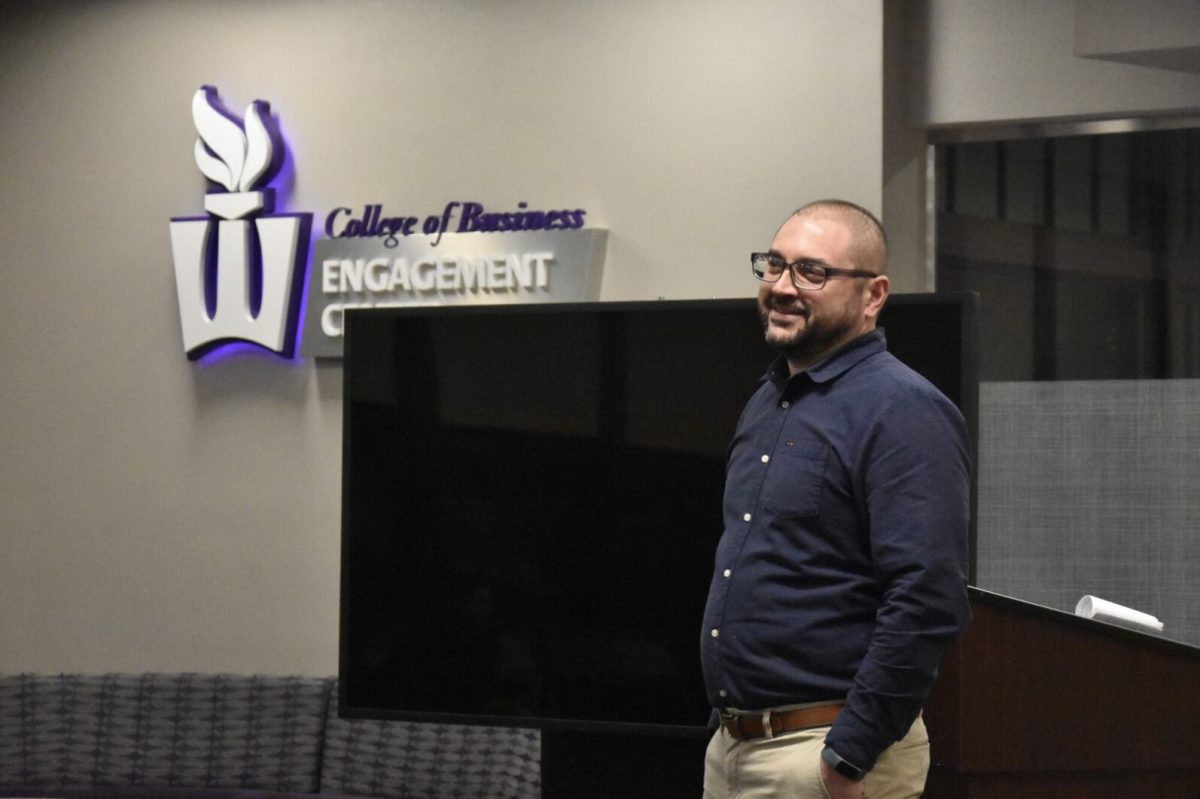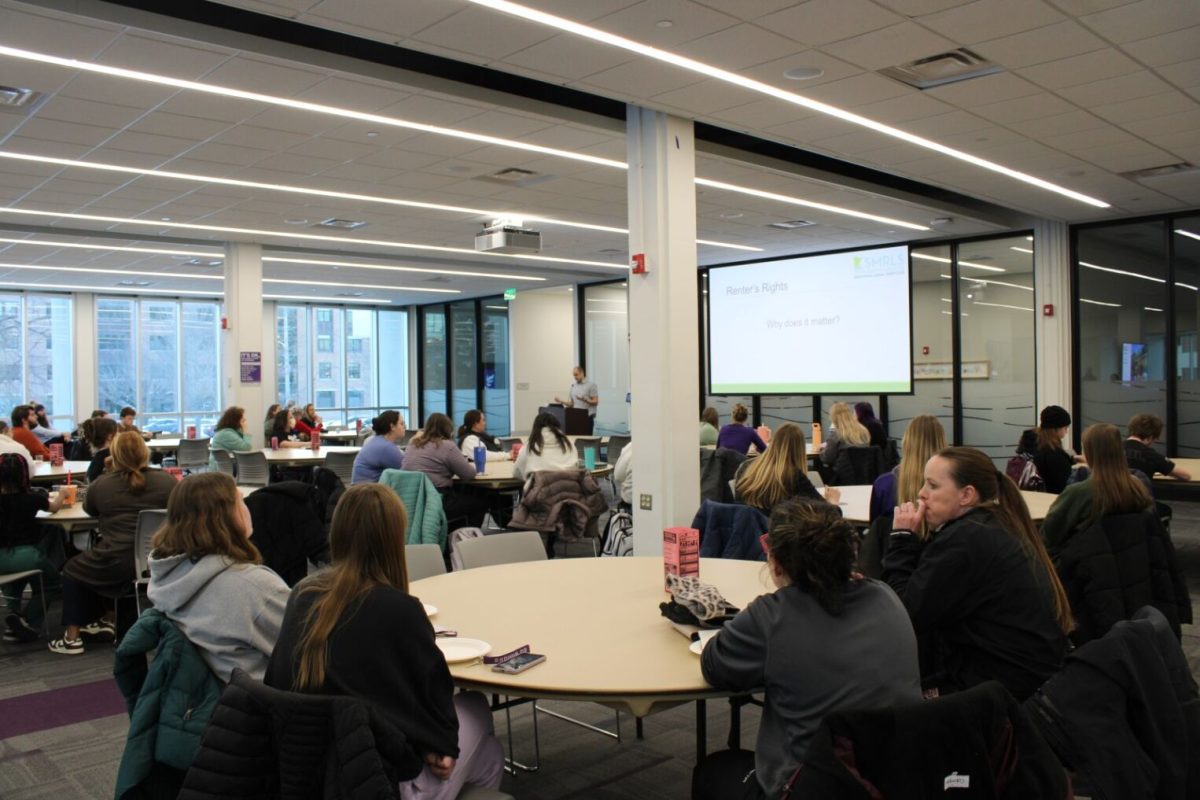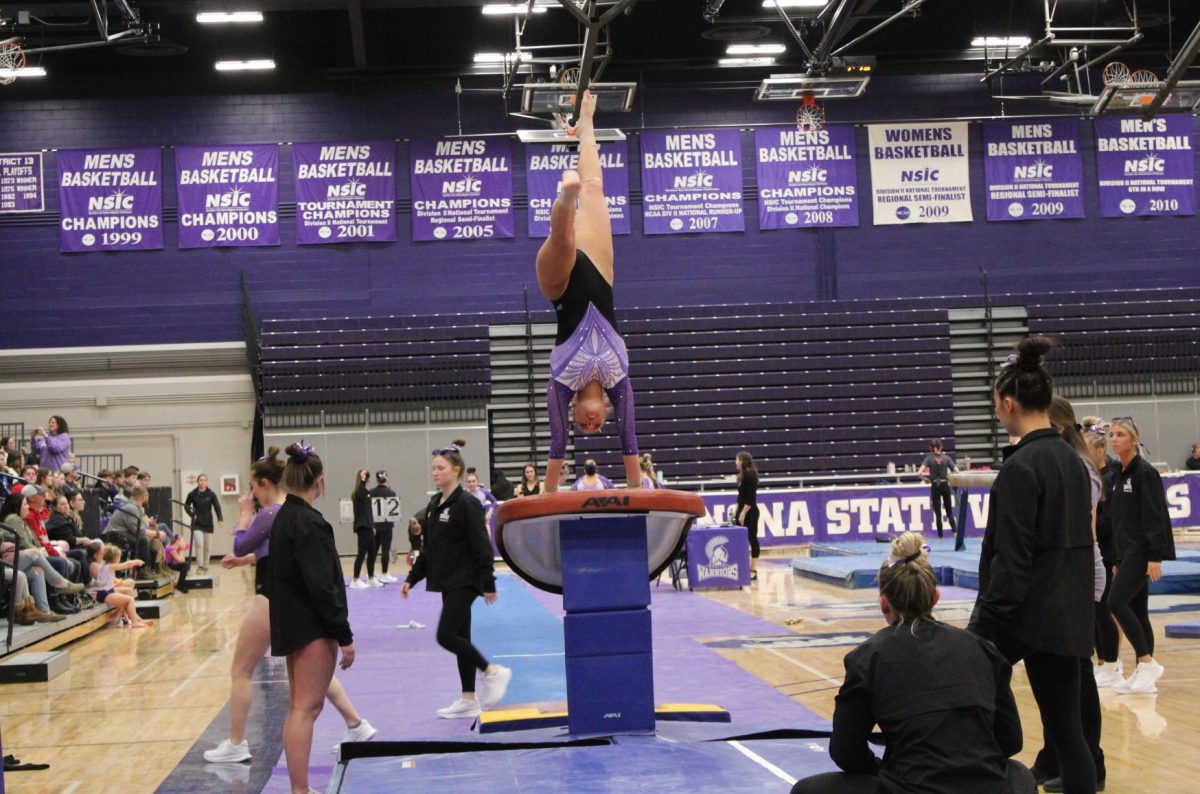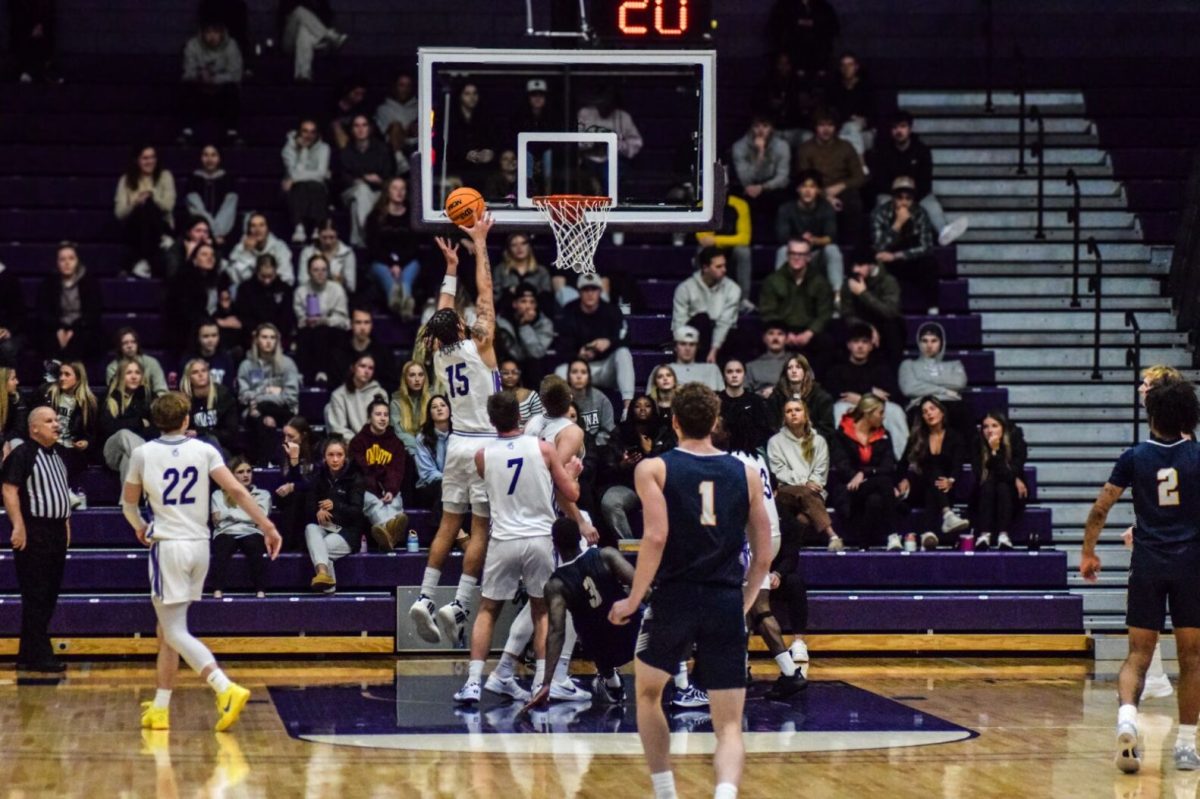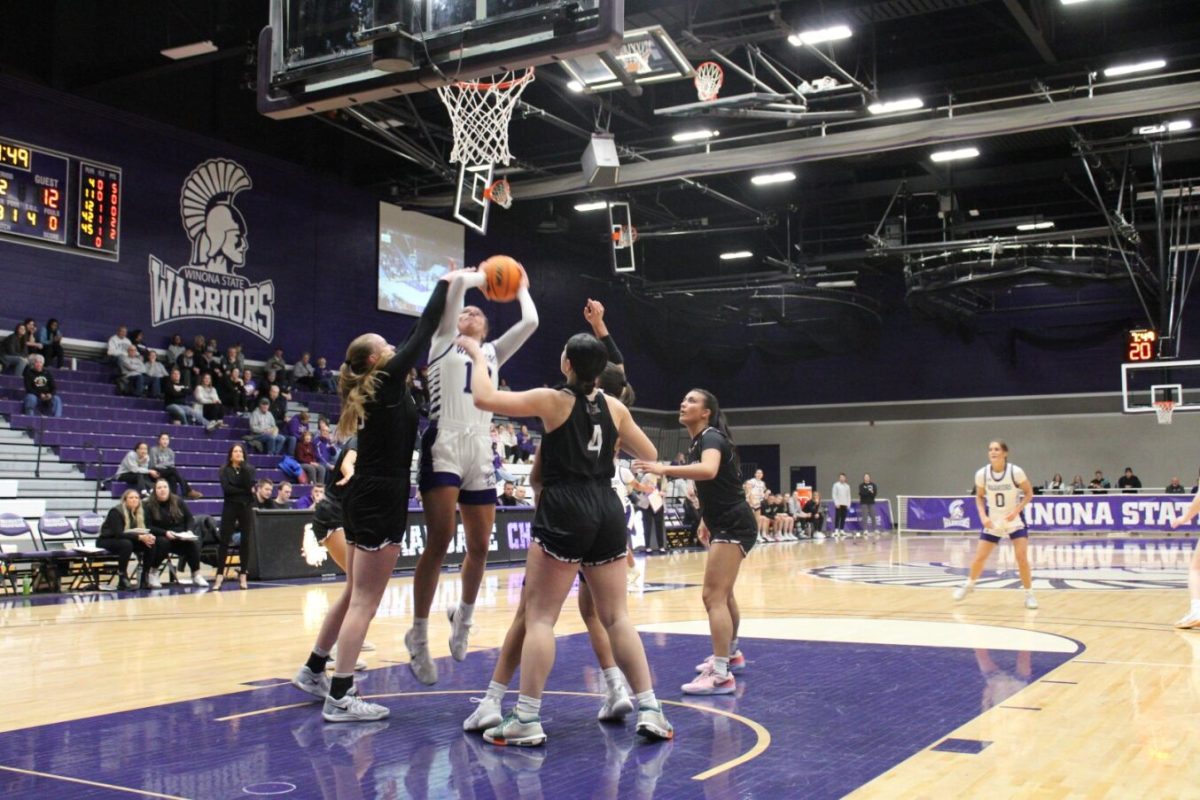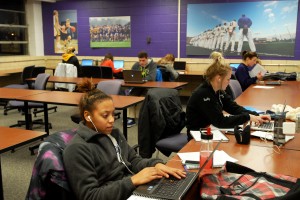
ALYSSA GRIFFITH
Christian Sopkowiak/Winonan
The debate over athletes’ focus on their sport over academics has been going on for quite some time.
Which leads to the question: how do Winona State University’s student-athletes’ grades fare?
Mike Turgeon, the associate athletics director, holds the responsibility of knowing how the student-athletes are doing in their classes at Winona State.
“Our student-athletes really care about excelling in the classroom and in their sport. This past fall, our average student-athlete GPA was 3.12, which is slightly higher than the average student body,” Turgeon said.
The average sports team at Winona State boasted a 3.23 cumulative GPA last fall. Student-athletes have become achievers of academic excellence at Winona State.
Of the 351 student-athletes at Winona State, 146 of them recorded a 3.50 last semester, which was good enough to get on the Dean’s list. Of those 146 student-athletes, 60 recorded a 4.0 this last semester.
Jo Stejskal, the Winona State NCAA faculty athletic representative, believes that the athletes at Winona State are always students first.
“Athletes are known as student-athletes at Winona State because that is where the emphasis is here. It’s on the student,” Stejskal said. “Student-athletes come here for their major, and it is a great thing for them to play their sport as well.”
This fall, 133 Winona State student-athletes were named to the Northern Sun Intercollegiate Conference All-Academic team, which requires that a student have a cumulative 3.20 GPA and at least a sophomore standing.
So it appears the current student-athletes at Winona State are performing well in the classroom, but what about the student-athletes who are coming in to Winona State?
“All incoming student-athletes have to go through the NCAA eligibility center to be cleared for college athletics their first year,” Turgeon said.
For Division II, the NCAA requires a 68 cumulative ACT score, and prospective college athletes must have taken 16 core credits that the high school labels as college prep. However, Winona State requires more than that.
“Coaches need to evaluate many different areas of a student-athlete to make sure they are a great fit for our university. They will look at their ability, work ethic, potential to compete at this level and other traits such as those,” Turgeon said.
As for the possible lack of academic skills in high school, Winona State admissions requires student-athletes to have at least a 21 composite score on the ACT and be in the top two thirds of their high school graduating class, or earn at least an 18 on the ACT and be in the top 50 percent of their class.
“It is against NCAA rules for student-athletes to get into the school by any other process,” Turgeon said.
If the student-athletes come into college and begin to struggle, Winona State offers various resources to aid in their studying.
“We have the Warrior Success Center in Wabasha Hall for student-athletes. There are a lot of resources within Winona State that student-athletes can go to as well as the general resources that all students can go to. Academics is a highly promoted and valued part of the student-athlete experience here,” Stejskal said.
Along with the Warrior Success Center being a hub for student-athletes, the freshmen student-athletes meet with an adviser that helps with their time management and study skills.
“These advising meetings range from daily to once a week depending on the student-athletes individual success plan. After their freshmen year, their academic plan is adjusted to progress towards degree monitoring, where we are making sure they are meeting the NCAA requirements for eligibility,“ Turgeon said.
Freshmen student-athletes are required to study at study tables for 4 to 10 hours per week, depending on their academic success plan set up by their advisers. After their first year, the study hall hours are adjusted based on their GPA.
Turgeon said overall, the student-athletes at Winona State are provided the resources they need and are excelling at both the academic and competitive level.
“I believe our university and coaching staff does a great job promoting how important it is to graduate,” he said.
With 12 to 20 hours of practice each week, student-athletes are often busier than their non-athlete classmates, but Turgeon said most seem to have a balance worked out.
“Our student-athletes are able to balance all of this very well and excel academically and athletically,” he said.




